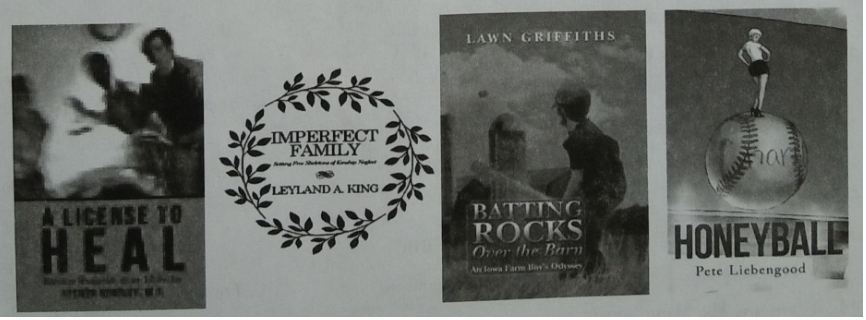��Ŀ����
17���ٶ�Ӣ�������ʦҪ��ͬ��֮�佻�������ģ���������ͬ��д�����¶��ģ������й���10������ÿ��������������������漰һ�����ʵ����ӡ�ɾ�����ģ����ӣ���ȱ�ʴ���һ��©�ַ��ţ��ģ������ڴ˷�������д���üӵĴʣ�
ɾ�����Ѷ���Ĵ���б�ߣ�\��������
�ģ��ڴ��Ĵ��»�һ���ߣ����ڸô�����д���ĺ�Ĵʣ�
ע�⣺1��ÿ���������ľ�����һ�ʣ�
2��ֻ������10�������ߣ��ӵ�11���𣩲��Ʒ֣�
3���������Ͳ��漰����ƴд��
This year��our school called on us students to make a good use of our time and do some socially practice during the holiday��so I found a job and began to work in a small restaurant��I thought it was easy��and it turned out to be a hard one by a matter of fact��I spend the whole morning washing dish and setting tables��I didn't have lunch until it was two in the afternoon��After lunch��I immediately began to work again��does the same things until 11pm��It took myself more than ten hours a day to work there!However��through the hard work��I've come to understand the value of hard work��I've also realized what difficult it is my parents to support the family��Therefore��I am now determined to study harder to repay my parents��
���� ������Ҫ��������ͨ�����ʵ���������ϴ���ӣ������ӣ���ʶ����ĸ���ҵIJ����ף���ˣ����߾���Ŭ��ѧϰ���ر���ĸ��
��� This year��our school called on us students to makea good use of our time and do some socially practice during the holiday��so I found a job and began to work in a small restaurant��I thought it was easy��and it turned out to be a hard one by a matter of fact��I spend the whole morning washing dish and setting tables��I didn't have lunch until it was two in the afternoon��After lunch��I immediately began to work again��does the same things until 11pm��It took myself more than ten hours a day to work there!However��through the hard work��I've come to understand the value of hard work��I've also realized what difficult it is��my parents to support the family��Therefore��I am now determined to study harder to repay my parents��
��⣺
1��ȥ��a ����ڴʣ�make good use of��Ϊ"�ܺ�����"���ǹ̶����䣮
2��socially��Ϊsocial �������ݴʣ�practice�����ʣ�Ҫ�����ݴ����Σ�
3��and��Ϊbut �������ʣ�ǰ�������־�֮����ת�۹�ϵ���Dz��й�ϵ��������but��
4��by��Ϊas ����̶����䣮as a matter of fact��Ϊ"��ʵ�ϣ���ʵ"���ǹ̶����䣮
5��spend��Ϊspent ���鶯��ʱ̬���˴��������ǹ�ȥ�����飬Ҫ��һ���ȥʱ̬��
6��dish��Ϊdishes �������ʸ�����dish�ǿ������ʣ������������ᄈ��Ҫ�ø�����ʽ��
7��does��Ϊdoing �������ڷִʣ�I��do֮������ν��ϵ�������ڷִ���״�
8��myself��Ϊme ������ʣ�it takes sb��time to do sth����Ϊ"��ij��ʱ����ij��"����һ�����ͣ��ô���me��
9��what��Ϊhow �����̾�䣮��"how"�����ĸ�̾��ṹ��ʽ�ǣ�How+adj��/adv��+����+ν��+��it is����
10����for �����ʣ����ݾ��⣺���ҵĸ�ĸ��˵���ý��for��
���� �߿����ĸĴ������ʽ��˵���ģ����Ĺ��£����ŵȣ����к�ǿ��ʵ���ԣ����ĵ����ݺ����Զ����ϸ���ѧ����ʵ�ʣ��ӱ����Ͽ�����һƪѧ��ϰ�������ȣ�ͨ��ȫ�ģ��˽���Ĵ��⣬����ȫƪ��ʱ̬���˳Ƽ�����������ͨ��ȫ��ʱ��һЩ���Ĵ����ȸĺã��ٽ������Ĵ�����Σ�Ҫ����������ӵĸĴ�������Ҫ�����еĴʷ����䷨����ƪ���ط������ر�ע�⣮���ѸĺõĶ������Ķ�һ�飬�����Ƿ���ȷ���о��Ƿ��в���֮���������γɶ��壮

The famous English writer��Charles Dickens��said that he could walk down any long street in��19��C and then tell you the names of all the shops he had ��20��D��Many great men of the world have wonderful memories��
A good memory is a great help ��21��Ba language��Everybody learns ��22��A own language by remembering the things he heard when he was a small child��Some children like those who live in foreign countries with their parents��seem to learn two languages as ��23��C as they do one��In school it is not so easy for pupils to learn a second language because they have very ��24��C time for it��
Memory ��25��Da diary that we keep every day��
| 16��A��easy | B��easier | C��easily | D��hardly |
| 17��A��Some | B��Other | C��The others | D��Others |
| 18��A��until | B��after | C��when | D��but |
| 19��A��Beijing | B��Paris | C��London | D��Moscow |
| 20��A��went | B��walked | C��came | D��passed |
| 21��A��learning | B��in learning | C��with learn | D��learn |
| 22��A his | B��their | C��your | D��our |
| 23��A��good | B��better | C��well | D��more easily |
| 24��A��few | B��a little | C��little | D��a few |
| 25��A��looks like | B��does like | C��likes | D��is like�� |
That evening��we were a bit ��22��C for time��So instead of having dinner at home��we had fast food near the movie theater Oscar��There went the ��23��B of eight movie tickets��
Then I met up with a friend and we sat around ��24��D for a while��and another movie ticket went into a cup of coffee��After that��we figured we might as well ��25��A around until the movie ended to pick up the boys��To help ��26��D the time��I bought snacks��However��the ��27��B went for an hour longer than expected��To watch the free movie��we always have to ��28��B an hour of ads��
Oh��did I ��29��Cparking and fighting my way through the ��30��Dto get to the right theater��I could have sent the ��31��Cto a movie theater in walking distance and had enough ��32��D left over to watch ten more movies!
Next time I'm offered something free��I'll ��33��A refuse it��
I should have known better����34��D in 2004��I built my own business��One of my marketing strategies is that I often offer free gifts��I said"probably"because"free"is just the most irresistible ��35��A in your marketing language��And it always ��36��C��
If you don't believe me��next time when you do a promotion����37��Athis test��one with and one without the free ��38��B��You will be amazed by how many people will ��39��D hundreds of dollars to get something for ��40��C
| 21��A��for | B��or | C��so | D��but |
| 22��A��grateful | B��prepared | C��rushed | D��thankful |
| 23��A��time | B��price | C��chance | D��length |
| 24��A��singing | B��judging | C��bargaining | D��chatting |
| 25��A��wander | B��turn | C��look | D��gather |
| 26��A��save | B��waste | C��record | D��kill |
| 27��A��meeting | B��movie | C��walk | D��coffee |
| 28��A��break down | B��sit through | C��cut down | D��look through |
| 29��A��forget | B��continue | C��mention | D��stop |
| 30��A��race | B��park | C��gate | D��traffic |
| 31��A��employees | B��customers | C��boys | D��friends |
| 32��A��food | B��patience | C��room | D��money |
| 33��A��probably | B��angrily | C��definitely | D��repeatedly |
| 34��A��Ending | B��Writing | C��Reporting | D��Starting |
| 35��A��word | B��reason | C��letter | D��desire |
| 36��A��fails | B��cheats | C��works | D��loses |
| 37��A��try | B��study | C��face | D��attend |
| 38��A��help | B��gift | C��advice | D��market |
| 39��A��gain | B��bank | C��receive | D��pay |
| 40��A��something | B��everything | C��nothing | D��anything |
